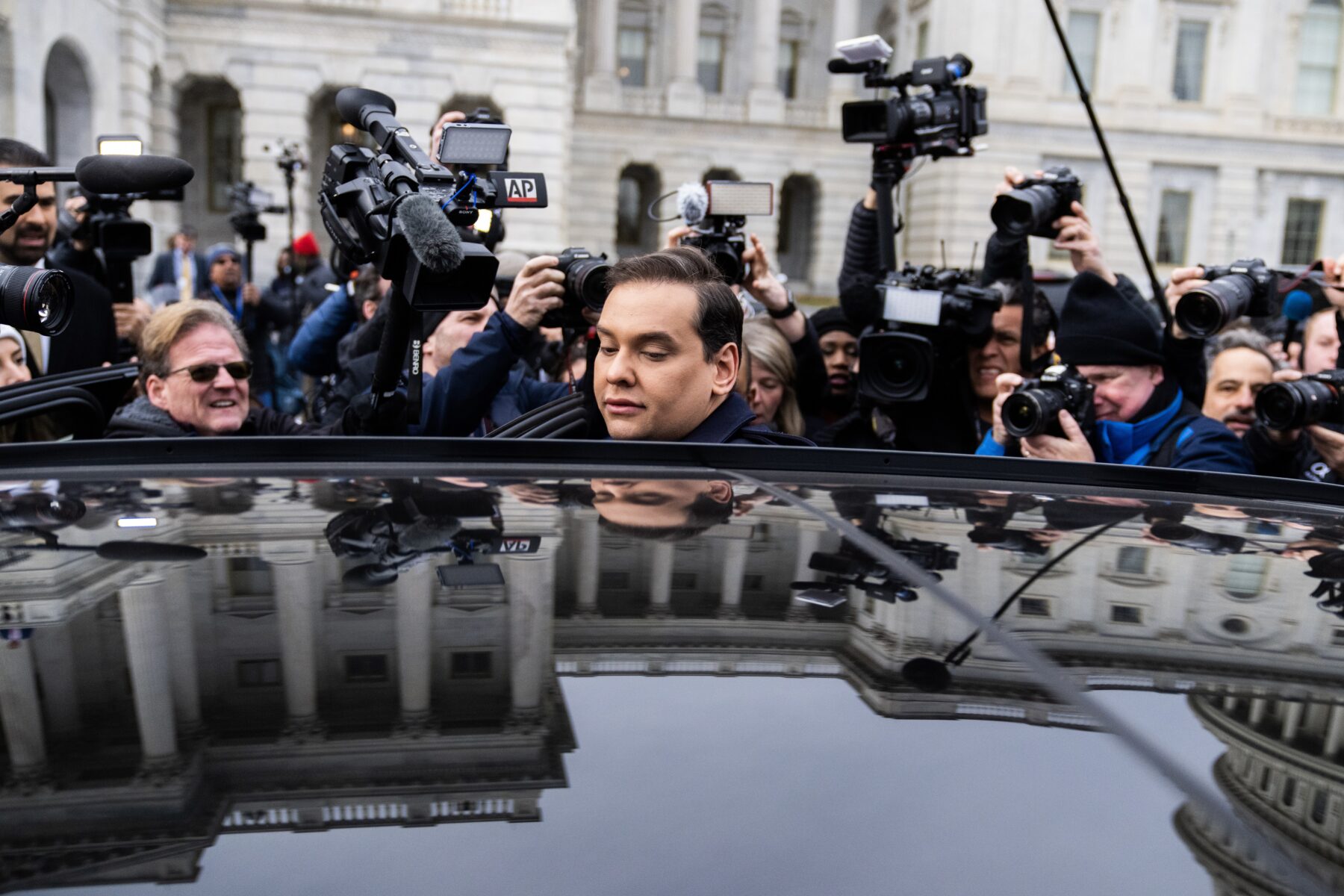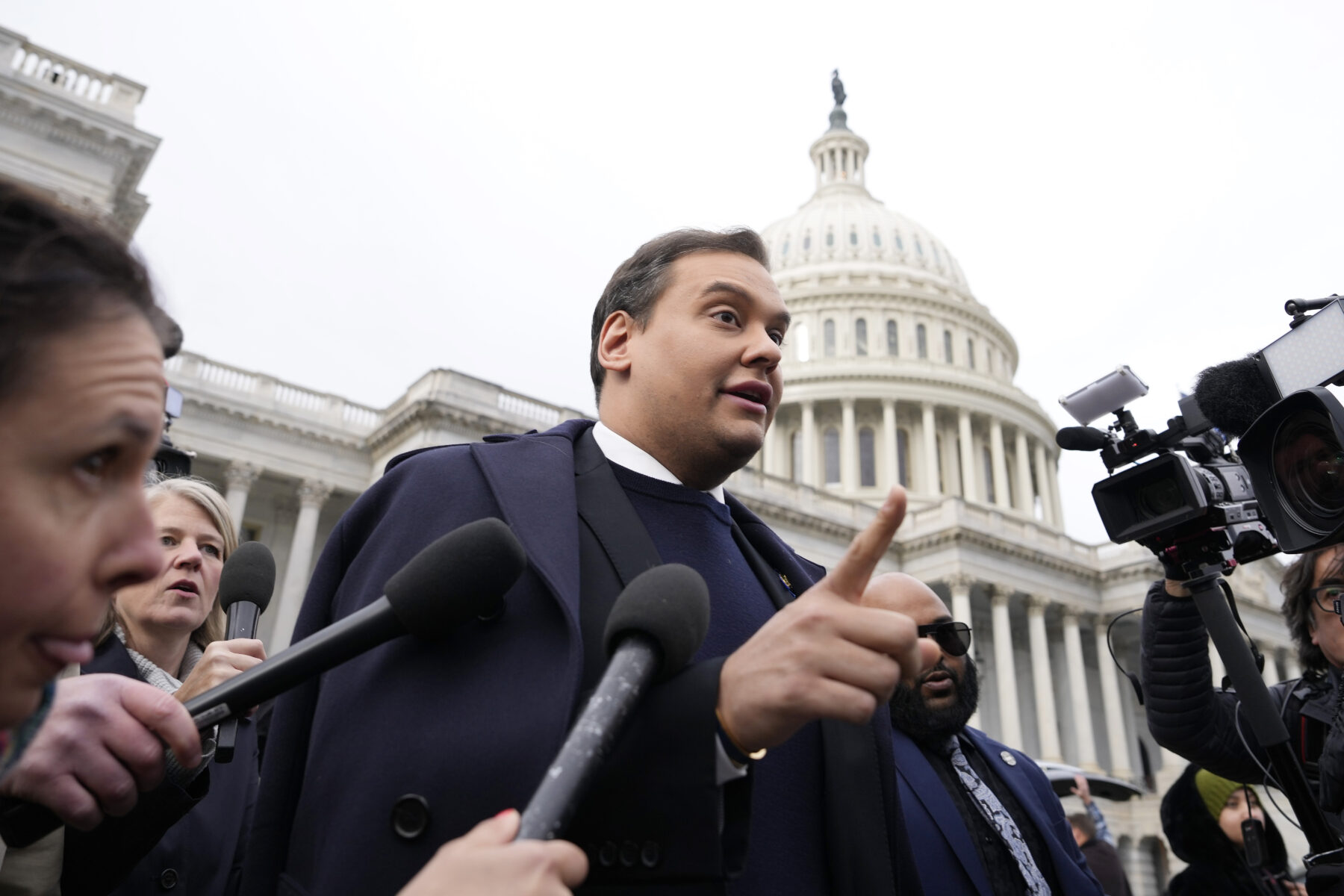
He’s a man of many aliases — Anthony Devolder, Anthony Zabrovsky, George Anthony Devolder Santos, Kitara Ravache. But you probably best know him by George Santos. The now-expelled Republican congressman made history last week when he became just the sixth member to get voted out by his peers. Though he didn’t last long in office, he achieved a level of infamy few ever reach.
Santos captured the nation’s attention a year ago when a bombshell New York Times story dissected his background, calling into question his religion and professional resume, among other things. (The report was published a month after Santos was elected and three months after a small local paper, the North Shore Leader, published a story that raised questions about Santos’ financial claims.)
As a result of the Times’ story, journalists across the country — and the world — joined the fray, digging into every piece of his personal biography. It turned out that almost nothing he said on the campaign trail was true, and the people of his New York-area district had elected a person they didn’t actually know.
He’s hardly the first scammer in government, and he certainly won’t be the last — which is why it’s critical to understand how he managed to slip through the cracks. Without reflecting on the days preceding his inauguration, and his 331 days as a congressman, the media could be doomed to make the same mistakes.
Invest in local media
In retrospect, Santos’ personal biography seemed too fantastic to be real: He campaigned in New York’s 3rd Congressional District in 2020 and 2022 as a Queens-born Brazilian-American gay man who attended Baruch College, had great success in finance, had Jewish heritage and grandparents who survived the Holocaust, and claimed his mother had worked at the World Trade Center and survived 9/11.
And while his own campaign did a background check on the candidate that caught multiple vulnerabilities, and the North Shore Leader had reported on some of Santos’ red flags right before the election, it wasn’t enough to derail his win to public office. A greatly diminished local news infrastructure did not allow for robust reporting on Santos’ longshot bid — and national media wasn’t paying attention to what was out there.
“Much of the criticism about the coverage of Santos has been focused on the failure of media — including the NYT — to catch onto [the] ruse before the election, which I think is fair,” said Grace Ashford, one of the reporters who broke the original Times story. “There’s something to be said about the impact of shrinking local news coverage, even within comparably well-endowed regions like the New York metro area. I hope that if the Santos story has any long-term impact, it is to remind newsrooms and their funders that there are fascinating, outrageous, consequential stories out there, and they are worth digging up.”
Mark Chiusano, a freelance writer who covered Santos for Long Island newspaper Newsday and is the author of a new book about Santos called “The Fabulist,” echoed Ashford’s sentiment. “It’s about taking every candidate seriously even if it doesn’t at first seem likely that they’ll win,” he told NBCU Academy, “and supporting local media to give reporters more space and time to look into people.”
Since 2005, the U.S. has lost almost 2,900 newspapers, according to Northwestern University’s Medill School of Journalism’s “The State of Local Journalism” annual report in 2023. “While much attention has focused on the loss of news in more rural areas of the country, two-thirds of the newspapers lost in recent years have been located in and around metro areas,” the report said. “Twenty of the 50 largest metro areas in the country have lost as many as half of their community papers since 2005.” And New York was in the top three for metro newspapers lost.
Financially supporting local journalism is a useful first step in avoiding the lapse in coverage that allowed a candidate like Santos to rise to power unchecked, say the reporters who spoke with NBCU Academy.
Be skeptical, patient and thorough
Most people who are revealed to be liars don’t hand you a card that says, “Don’t trust me.” It’s through the process of reporting, researching and fact-checking that journalists can uncover whether what people say is true. And for those who have covered Santos, his casual relationship with the truth wasn’t immediately clear.
“As we dug into his background, trying and failing to corroborate the stories he told about himself, it became clear that there was a lot more to him than met the eye — and also that we could not take anything he said at face value,” said Ashford.

Ashford’s experience also reveals the importance of covering a beat and learning things about your subject that the casual observer wouldn’t know. “I came to know not just that he lied, but how, and in what situations. It’s a skill that served me well over the past year that allowed me to see and report not only on his lies, but the truths that lie beneath them.”
Chiusano said the inability to take Santos at his word was one of the major challenges of writing a book on him. “It’s why I talked to over 100 people who knew Santos and dug for documents and recordings and social media posts, to try to triangulate the things he and others have said. It was the only way to start separating lies from truth.”
Jacqueline Sweet, a freelance reporter who has covered Santos for local news website Patch and for Politico and Mother Jones, called the experience, “a crash course in ‘kill your idols.’” She implored writers at smaller outlets to “never assume the big guys are doing their job or that one single reporter can’t find something no one could.”
A background check is not required to run for Congress, making journalists one of the first lines of defense in demystifying who candidates are and explaining what’s at stake for voters. Journalists have a central role in a functioning democracy — which can explain why authoritarian politicians often take aim at the fourth estate.
Evaluate why a public figure is worth covering
While the salacious details of his past elevated Santos as a news character, it was his access to information and his duties as a public servant representing nearly three-quarters of a million people that made him a matter of public interest. But it was often difficult to know whether the stories that came out about him over the past year were simply tabloid fodder, or of real importance.
“It’s a delicate balance,” Ashford said. “Media attention certainly does bring notoriety, but it also can bring accountability. I think the trick is remembering to ask why you are writing the story — whether it reveals corruption, criminality or a broken system — or if it is simply for the spectacle.”
Now that Santos is officially no longer employed by the U.S. government, he seems keen on leaning into the spectacle. He’s already making videos on Cameo for at least $400 each, and he tweeted that he’d be doing an interview with comedian Ziwe, who is best known for conversations that go off the rails.
So what is the responsibility of serious journalists covering him, now that his actions no longer impact constituents?
“We are all tasked every day with grappling with the hard questions,” Sweet said, “and we control framing, narrative, inclusion, exclusion.” She points to the media’s current outsized focus on Santos’ Cameos. “Everyone is complicit by making these small and large decisions every day.”
While Ashford agreed we need to exercise caution, she still sees value in keeping an eye on him. “I do think there’s a danger in continuing to cover him as though he were still a member of Congress,” she said. “At the same time, there are a few details that remain a mystery with regard to his personal business and campaign loans, which I’d argue are a matter of public interest.”
With his criminal trial scheduled for September, she said, “I, for one, will continue to watch closely.”


